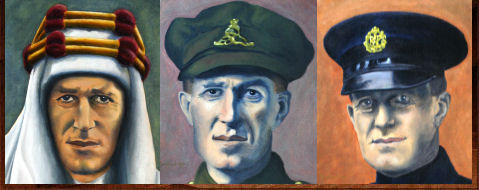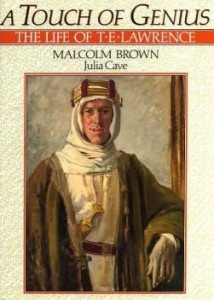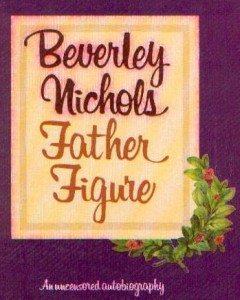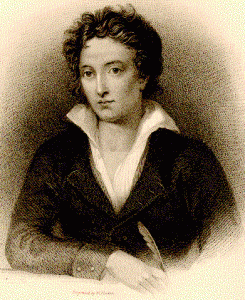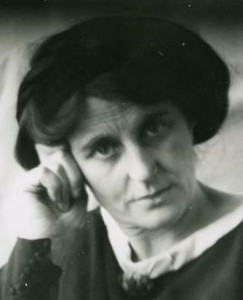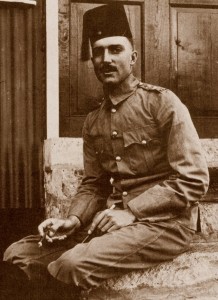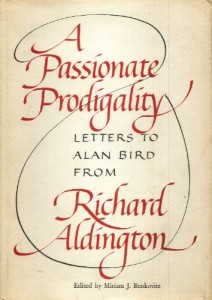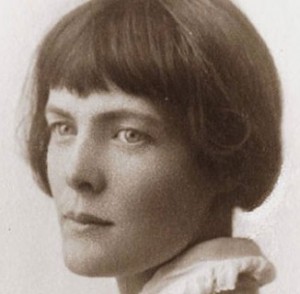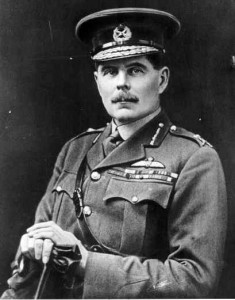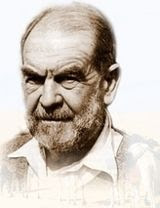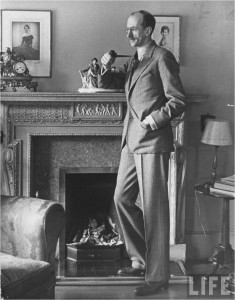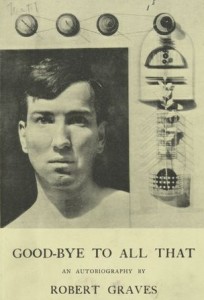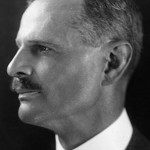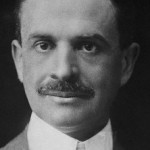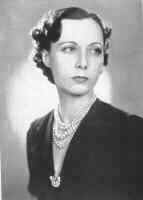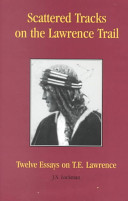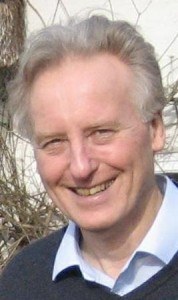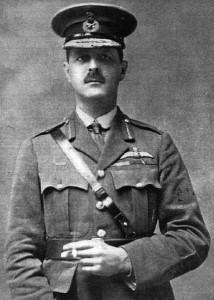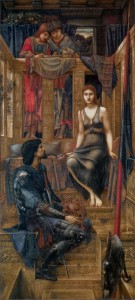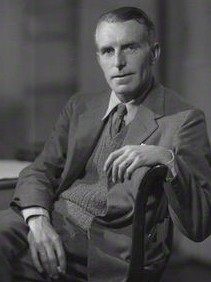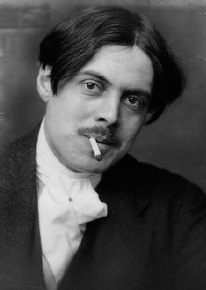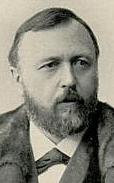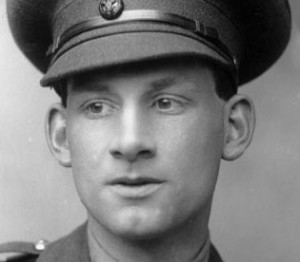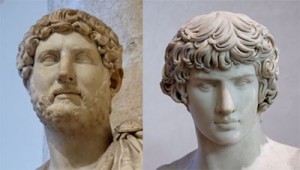The Label “Homosexual” – Part 2: Defences
THE LAWRENCE BUREAU
Aldington’s book was the first critical enquiry into TE’s life to appear, and it was not well-received by TE’s friends and admirers. Even before it was published, people like Basil Liddell Hart (biographer of TE), Eric Kennington (illustrator of Seven Pillars) and his wife Celandine, and Robert Graves (biographer of TE), started a campaign to suppress the book. This involved a petition to the Queen, letters to the Prime Minister, pressure on the publisher, legal manoeuvres, smear tactics, and even talk of inflicting violence on Aldington. Publication, they said, might cause the death of TE’s mother, would demolish a British national hero, undermine British prestige, and would play into the hands of the Communists. 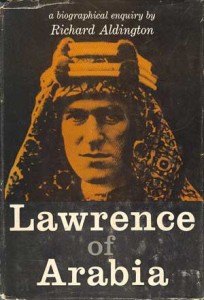 Aldington called these people with a vested interest in TE’s reputation “The Lawrence Bureau” (a pun on the Arab Bureau), and their activities harmed him and his reputation greatly. According to Aldington’s daughter Catherine they were responsible for destroying her father’s life and hers at the same time. He was “harassed by the friends and admirers of T.E.L. to a point where not only did he lose his health, but was also deprived of his way of earning his living: writing. He was driven to despair by ruin and only saved by his friends.” (*51)
Aldington called these people with a vested interest in TE’s reputation “The Lawrence Bureau” (a pun on the Arab Bureau), and their activities harmed him and his reputation greatly. According to Aldington’s daughter Catherine they were responsible for destroying her father’s life and hers at the same time. He was “harassed by the friends and admirers of T.E.L. to a point where not only did he lose his health, but was also deprived of his way of earning his living: writing. He was driven to despair by ruin and only saved by his friends.” (*51)
Some people advised the group to do as TE would have done, and not to take Aldington and his accusations so seriously. Colonel Stewart Newcombe (1878-1956), for example, said “He would have grinned and been greatly amused at “debunking”. (*52) And even Robert Graves agreed with this: “TE would get a great kick out of it were he alive and even offer to go into the witness box on A’s behalf.” (*53) In 1934 TE had criticized Hart for coming to his defence: “He’s always itching to write defences or rejoinders. He knows what I think and doesn’t tell me beforehand. When you send the articles back, tell him they aren’t any good, and he’d better suppress them. After all, everybody has a right to say what he thinks about me, if it’s adverse. I’m in credit.” (*54) The main reason why they never listened to TE’s advice, was that they all had something personal to hide or to lose, because of Aldington’s book. Their own reputation was at stake, since they were known to be close to TE, and now their friend was suddenly accused of being a liar and a criminal. A typical reaction in that regard is that of Pat Knowles (1906-1981) the owner of Clouds Hill (TE’s house), whose father Arthur had served with TE at Bovington Camp. Knowles was worried that Aldington’s allegations might reflect on him. “The sodomy business affects me – my brothers and my father, and would imply that Clouds Hill was a place of evil retreat.” (*55) The problem was that they all had skeletons in their closets, just like their friend TE. They were a little bit different, nothing wrong with that, but different can be dangerous when you are publicly known to be a friend of someone who is accused of being evil.
LIDDELL HART AND HIS FASCINATION WITH LADIES’ UNDERWEAR
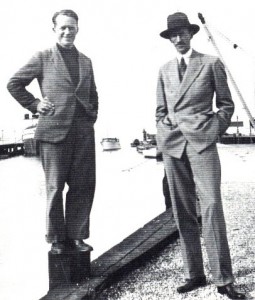 Basil Liddell Hart (1895-1970) was a dandy, a military historian, and later became one of the principal costume authorities in England. As one the early biographers of TE (1934), he was suddenly under personal attack, since he was indirectly accused by Aldington of not having told the whole story. For Hart, friendship with TE had become immensely important, which led him occasionally to disregard the facts. TE had contributed greatly to his book, and Hart was well aware of the fact that some of the information he had given him could not have been true, which Aldington now suggested. Since his reputation as a biographer and as an expert on military history depended on it, it was inevitable that he should take up the fight, and so Hart became the informal leader of a loosely organized group of friends of TE. For Hart, the three worst aspects of Aldington’s “extremely nasty book”, were broadcasting TEL’s illegitimacy while his mother was still alive, “portraying him as a sexual pervert”, and making “the general insinuation that his reputation was merely a fiction created by
Basil Liddell Hart (1895-1970) was a dandy, a military historian, and later became one of the principal costume authorities in England. As one the early biographers of TE (1934), he was suddenly under personal attack, since he was indirectly accused by Aldington of not having told the whole story. For Hart, friendship with TE had become immensely important, which led him occasionally to disregard the facts. TE had contributed greatly to his book, and Hart was well aware of the fact that some of the information he had given him could not have been true, which Aldington now suggested. Since his reputation as a biographer and as an expert on military history depended on it, it was inevitable that he should take up the fight, and so Hart became the informal leader of a loosely organized group of friends of TE. For Hart, the three worst aspects of Aldington’s “extremely nasty book”, were broadcasting TEL’s illegitimacy while his mother was still alive, “portraying him as a sexual pervert”, and making “the general insinuation that his reputation was merely a fiction created by 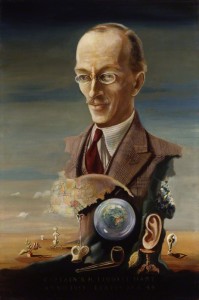 British Government-inspired propaganda to promote our Imperial interests and gain American sympathy.” (*56) Particularly the accusation that TE was a homosexual came as a shock to him, just as it had been when he discovered the passionate affair of his own son Adrian (1922-1991) with John Lehmann (1907-1987), the well-known poet and editor. According to Hart’s biographer, “He was squeamish about nakedness, print or skin, and vaguely disquieted by any suggestion of the homoerotic, let alone the frankly homosexual.” (*57) The arguments he used to counter Aldington’s accusations of homosexuality were already known from the Friends era, and are not very convincing. Hart claimed that none of TE’s male friends had “homosexual traits” and none of them recognized it in him. Homosexuality was foreign to TE because of his “upbringing and composition”, and therefore his sympathy for homosexuality and the “homosexual colouring” in Seven Pillars were purely literary. And finally, he suggested that TE did not hate women, but was friendly with them, while “several were of the really feminine type whom homosexuals do not usually like.”(*58)
British Government-inspired propaganda to promote our Imperial interests and gain American sympathy.” (*56) Particularly the accusation that TE was a homosexual came as a shock to him, just as it had been when he discovered the passionate affair of his own son Adrian (1922-1991) with John Lehmann (1907-1987), the well-known poet and editor. According to Hart’s biographer, “He was squeamish about nakedness, print or skin, and vaguely disquieted by any suggestion of the homoerotic, let alone the frankly homosexual.” (*57) The arguments he used to counter Aldington’s accusations of homosexuality were already known from the Friends era, and are not very convincing. Hart claimed that none of TE’s male friends had “homosexual traits” and none of them recognized it in him. Homosexuality was foreign to TE because of his “upbringing and composition”, and therefore his sympathy for homosexuality and the “homosexual colouring” in Seven Pillars were purely literary. And finally, he suggested that TE did not hate women, but was friendly with them, while “several were of the really feminine type whom homosexuals do not usually like.”(*58)
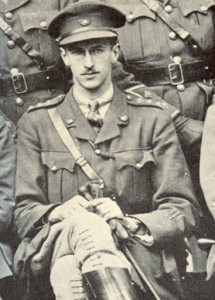 The problem with Hart was that he had something hidden in his own sexual closet, which was the fact that he was a fetishist and exhibitionist with a mania for corsetry. He described it himself as “an aesthetic desire for the beauty and grace of womanhood”, which led him to spend a long lifetime gazing at women. He didn’t like them naked, but well-designed, and his attention was focussed on one zone in particular, the waist, its measurement and its displacement. For him the effect it produced was morally improving, aesthetically pleasing and sexually arousing. His corset-mania involved transvestism, the designing and wearing of wasp-waisted corsets, as well as designing them for his wife to wear. His first wife, Jessie Stone, suffered from “sex starvation” as a consequence of Hart’s impotence. While second-in-command of a company on the Somme during the First World War, he was shelled and gassed. He returned to England with phosgene poisoning, anxieties about his own courage in action (he had understandably given way to his fear and panicked), manic delusions of military greatness, hypochondria, and impotence. His wife was a voluptuous woman and a biddable mannequin, and the sensational impression she made was partly created by him, since he was the one who shaped and draped her.
The problem with Hart was that he had something hidden in his own sexual closet, which was the fact that he was a fetishist and exhibitionist with a mania for corsetry. He described it himself as “an aesthetic desire for the beauty and grace of womanhood”, which led him to spend a long lifetime gazing at women. He didn’t like them naked, but well-designed, and his attention was focussed on one zone in particular, the waist, its measurement and its displacement. For him the effect it produced was morally improving, aesthetically pleasing and sexually arousing. His corset-mania involved transvestism, the designing and wearing of wasp-waisted corsets, as well as designing them for his wife to wear. His first wife, Jessie Stone, suffered from “sex starvation” as a consequence of Hart’s impotence. While second-in-command of a company on the Somme during the First World War, he was shelled and gassed. He returned to England with phosgene poisoning, anxieties about his own courage in action (he had understandably given way to his fear and panicked), manic delusions of military greatness, hypochondria, and impotence. His wife was a voluptuous woman and a biddable mannequin, and the sensational impression she made was partly created by him, since he was the one who shaped and draped her. 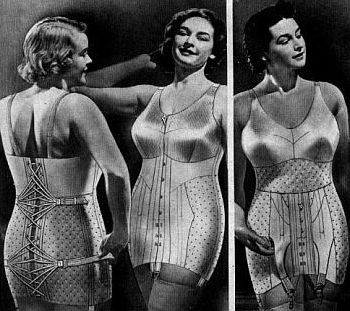 Because he knew he couldn’t satisfy her himself, he allowed her to have relationships with men. After their divorce in 1938, his corset-mania was transferred to his second wife and her daughters. Hart threatened to go on hunger strike unless they did as he insisted, namely, abandon their country clothes and wear the high heels, stockings and corsets he had measured for them. Even in his ideas about TE, his fetishism shines through. “That excessive degree of public attention, which arises from a legendary extension of a man’s due fame, was in a sense self-created by the cloak of mystery in which he wrapped himself – like the mystery of a woman who dons a gauzy veil, who exposes her legs while wearing a high-necked dress, who wears a crinoline while exposing her bosom.” (*59)
Because he knew he couldn’t satisfy her himself, he allowed her to have relationships with men. After their divorce in 1938, his corset-mania was transferred to his second wife and her daughters. Hart threatened to go on hunger strike unless they did as he insisted, namely, abandon their country clothes and wear the high heels, stockings and corsets he had measured for them. Even in his ideas about TE, his fetishism shines through. “That excessive degree of public attention, which arises from a legendary extension of a man’s due fame, was in a sense self-created by the cloak of mystery in which he wrapped himself – like the mystery of a woman who dons a gauzy veil, who exposes her legs while wearing a high-necked dress, who wears a crinoline while exposing her bosom.” (*59)
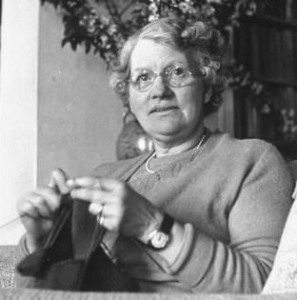 ERIC AND CELANDINE KENNINGTON
ERIC AND CELANDINE KENNINGTON
Eric Kennington(1888-1960), the artist who worked with TE on Seven Pillars, and his wife Celandine (1886-1975), were shocked by the accusations made by Aldington. Both were extremely loyal to TE and very grateful for his friendship. For Eric, TE was all important because he had provided him with paid work and a great reputation as an artist, while Celandine felt TE had saved her life. He had been good to her when she suffered from depression, particularly in the period after she had a dreadful miscarriage. He talked to her, clarifying all her fears and she felt understood completely. Aldington’s book was a personal slap in the face for both of them. First of all, they were bothered about the “hounding of Mum”, the harm the book would do to TE’s mother (then 92). It seems they both felt a personal obligation to honour TE’s request that they shield his mother from revelations of her adultery. (*60) According to Mrs Kennington, it was “a most dastardly and dishonourable thing to hound a gallant old woman like this and present her as food for millions of low appetites? (…) I am quite convinced that this sort of exposure will kill her, her sons and the past are so terribly precious and real to her.” (*61) But even more important was the fact that the book “makes out TE to be a liar and a homo-sexual”. Aldington exploited TE’s supposed homosexuality and used it as a means to “blackmail and generally degrade Englishmen” and “skilfully undermine the moral of idealistic youth by trying to make out their hero to be a homo-sexual.” (*62) In her eyes, his “filthy” book was subversive and clearly communist-inspired, holding a national hero up to derision, and the international consequences would be severe, damaging Anglo-American relations, British prestige in the Middle East, and inflaming anti-British feelings in France. “To counteract Aldington’s drab dirt” and particularly his accusation that TE hated women, she tried to give the world a picture of TE from a woman’s point of view. When the journal Housewife published her article about TE in 1955, she was ecstatic by the thought that it would reach millions of women. “I have been especially aiming at killing Aldington’s assertion that the two rooms in the garden of the Oxford house and Clouds Hill were sinister and that TE hated his mother. (…) The meat is the way Lawrence saved my life.” (*63) 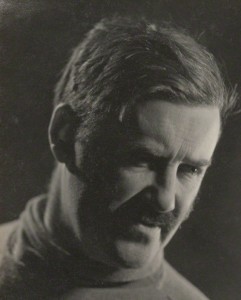
Her husband, Eric, was as infuriated by Aldington’s biography as she was. “If he is instrumental in murdering a magnificent old woman & in labelling a great Englishman (or Scot-Irish) as a bugger, who was anything of the sort, he’ll be foulled as a citizen for life.” (*64) He did all he could to fight it, penning numerous letters to anyone who had known TE, who admired him, or who might possibly have some influence, asking them to prevent the book from being published or, at the very least, to sue the author for libel. In one typical letter, Kennington prophesied that if Aldington’s book was allowed to enter the public domain there would be an “increase of adultery, sodomy, sadism, self-seeking and lesser vices, a rift between USA and GB, a gleeful Russian triumph, a lessening of our prestige, authority, influence among friends, enemies, especially among the dark-skinned people, and a loss of faith in our youth towards Christianity and Religion and Patriotism.” And he concluded that, “No man in GB was farther from sodomy than TE.” (*65) However there is some doubt if he also held that opinion privately, since he told the writer Henry Williamson (1895-1977), after he had seen TE one day with “the RAF boys in his cottage”, that he thought TE was homosexual. (*66) Besides the loyalty and friendship of Kennington and his wife for TE, there was also the worry about the possible damage Aldington’s book would do to Eric’s reputation as an artist, which was, for the most part, based on his work for TE. The success of his art had brought financial stability to a household which was otherwise not stable at all, due to a long-standing family secret: Celandine’s manic depression. At that time there was no medication for it, which meant that episodes of psychosis and depression would alternate periodically and unexpectedly, giving them and their children very hard times to get through.
ROBERT GRAVES AND HIS LOVE FOR PETER
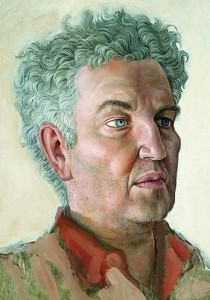 The writer and poet Robert Graves (1895-1985), author of the first biography of TE (1927), was, like Liddell Hart, in a vulnerable position because of the publication of Aldington’s book. Because of time pressure, TE had greatly contributed to Graves’ book about him, but Aldington showed that much of that information was not true at all. Graves had been aware of this all along, but since he was largely in TE’s debt had not been troubled about it. At the time, he was having financial problems, and TE wanted to help his friend, but at the same time keep control over what was being written about himself. What particularly bothered Graves about the new biography by Aldington, was not his own reputation or to that of TE, but mainly the harm it would do to TE’s mother. The illegitimacy had now become public and she would be devastated, being reminded of her sins. “The only objection I have is to the bad taste of smearing Mrs. L, whom I admire and love, before her death. Yet this bad taste will be more damaging to A than anything else.” Graves said he was so angry, that he even wanted to “thump” Aldington. A negative book about TE did not surprise him, since, “A debunking book was obviously due one day, better it should come and in its most unpleasant form while it can be dealt with faithfully by survivors who know the facts.” The book itself he considered to be “perverse and sneering and (it) contains all the muck that an industrious rogue could rake together in 3 years.” (*67)
The writer and poet Robert Graves (1895-1985), author of the first biography of TE (1927), was, like Liddell Hart, in a vulnerable position because of the publication of Aldington’s book. Because of time pressure, TE had greatly contributed to Graves’ book about him, but Aldington showed that much of that information was not true at all. Graves had been aware of this all along, but since he was largely in TE’s debt had not been troubled about it. At the time, he was having financial problems, and TE wanted to help his friend, but at the same time keep control over what was being written about himself. What particularly bothered Graves about the new biography by Aldington, was not his own reputation or to that of TE, but mainly the harm it would do to TE’s mother. The illegitimacy had now become public and she would be devastated, being reminded of her sins. “The only objection I have is to the bad taste of smearing Mrs. L, whom I admire and love, before her death. Yet this bad taste will be more damaging to A than anything else.” Graves said he was so angry, that he even wanted to “thump” Aldington. A negative book about TE did not surprise him, since, “A debunking book was obviously due one day, better it should come and in its most unpleasant form while it can be dealt with faithfully by survivors who know the facts.” The book itself he considered to be “perverse and sneering and (it) contains all the muck that an industrious rogue could rake together in 3 years.” (*67) 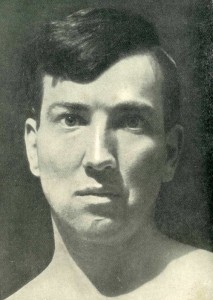
To counter Aldington, Graves publicly denied the accusations of homosexuality. He suggested that TE was impotent after his rape at Deraa in 1917. “The suggestion that he was a homosexual is absurd and indecent; the truth seems to be that he was flogged into impotence at Deraa.” (*68) Impotence being “nervus” in Latin, and therefore TE saying “I lost my nerve at Deraa” should be read, according to Graves, as “permanent impotence when resisting a sexual assault.” With this argument Graves tried to show that TE’s impotence would have made it impossible for him to be involved in homosexual acts. A fact which was of great importance, since only acts were criminalized. According to Graves, TE’s impotence led him to being “unable to consummate his heterosexual love for SA.” And SA was “without doubt the only woman in his life, and he had kept himself sexually chaste for her sake. … Lawrence seems to have now felt in honour bound to cut “SA” out of his life, since he could never give her children. The emotional frustration and spiritual torture to which this condition subjected him would have turned any lesser man to madness or suicide and explain his subsequent vagaries and abnormalities.” (*69) Which was rather a far-fetched idea, since almost everybody (even TE’s brother Arnold) was convinced that SA was an Arab boy and certainly not a woman.
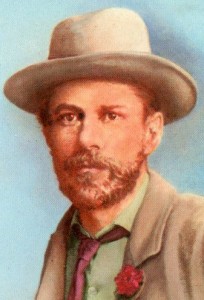 The problem with Robert Graves was that he became more and more prejudiced about homosexuality when he got older. He complained for example, of TE’s homosexual friends and their influence. “The spavined team of TE’s literary friends (his cultivation not only of the literature of disease but of physical and moral deformity) makes a pretty poor showing.” (*70) According to Graves, these homosexual friends of TE, like E.M. Forster (1879-1970), Frederic Manning (1882-1935) and David Garnett (1892-1981), “entirely twisted in spirit”. (*71) But it was precisely their twistedness that attracted TE to them. As an adolescent Graves had been much more positive about this sort of thing, and had even written to the well known activist for sexual freedom, Edward Carpenter (1844-1929), confessing his books had taken the scales from his eyes and crystallized his vague feelings. (*72) In 1913 he had fallen in love with a fellow schoolboy, three years younger than he was. (*73) Graves considered him to be, “exceptionally intelligent and fine-spirited”, a “radiant and unusual creature” and “still wholesome-minded and clean-living”. (*74) He became the emotional focus of Graves’ life, and the relationship was a great comfort to him while he was serving in France during 1915 and 1916.
The problem with Robert Graves was that he became more and more prejudiced about homosexuality when he got older. He complained for example, of TE’s homosexual friends and their influence. “The spavined team of TE’s literary friends (his cultivation not only of the literature of disease but of physical and moral deformity) makes a pretty poor showing.” (*70) According to Graves, these homosexual friends of TE, like E.M. Forster (1879-1970), Frederic Manning (1882-1935) and David Garnett (1892-1981), “entirely twisted in spirit”. (*71) But it was precisely their twistedness that attracted TE to them. As an adolescent Graves had been much more positive about this sort of thing, and had even written to the well known activist for sexual freedom, Edward Carpenter (1844-1929), confessing his books had taken the scales from his eyes and crystallized his vague feelings. (*72) In 1913 he had fallen in love with a fellow schoolboy, three years younger than he was. (*73) Graves considered him to be, “exceptionally intelligent and fine-spirited”, a “radiant and unusual creature” and “still wholesome-minded and clean-living”. (*74) He became the emotional focus of Graves’ life, and the relationship was a great comfort to him while he was serving in France during 1915 and 1916. 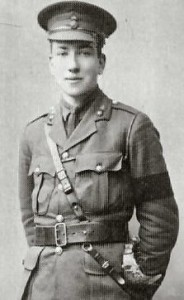 The two corresponded regularly until in 1916, when the boy’s mother found the letters. She was shocked by their content, and made him promise not to contact Graves anymore, leaving Graves “widowed, laid waste and desolate”. Worse was to come, because in July 1917, the boy was arrested for soliciting with a corporal in a Canadian regiment. Graves was appalled because he thought him “honourably chaste and sentimental”.(*75) He decided to consider him dead, and to forget all about him. It is clear that for Graves, and for many men of his time (like Aldington, and probably TE too), there was a big difference between (chaste) manly love and homosexuality. ”In English preparatory and public schools romance is necessarily homosexual. The opposite sex is despised and treated as something obscene. Many boys never recover from this perversion. For every one born homosexual, at least ten permanent pseudo-homosexuals are made by the public school system: nine of these ten as honourably chaste and sentimental as I was.” (*76)
The two corresponded regularly until in 1916, when the boy’s mother found the letters. She was shocked by their content, and made him promise not to contact Graves anymore, leaving Graves “widowed, laid waste and desolate”. Worse was to come, because in July 1917, the boy was arrested for soliciting with a corporal in a Canadian regiment. Graves was appalled because he thought him “honourably chaste and sentimental”.(*75) He decided to consider him dead, and to forget all about him. It is clear that for Graves, and for many men of his time (like Aldington, and probably TE too), there was a big difference between (chaste) manly love and homosexuality. ”In English preparatory and public schools romance is necessarily homosexual. The opposite sex is despised and treated as something obscene. Many boys never recover from this perversion. For every one born homosexual, at least ten permanent pseudo-homosexuals are made by the public school system: nine of these ten as honourably chaste and sentimental as I was.” (*76)
DIFFICULT POSITIONS
Aldington’s biography put many friends and acquaintances of TE in difficult positions, not only because they had a lot to lose by it, but also because they had something to hide: Liddell Hart his fetishism and a son who was homosexual, Eric and Celandine Kennington her mental state, and Graves his sympathy for manly love in his adolescence. Similarly, other friends of TE, like E.M. Forster and Siegfried Sassoon (1886-1967), tried to keep their distance from publicity about the book because they were homosexual.
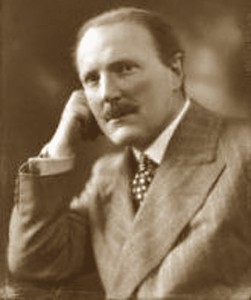 Someone who was most certainly troubled by all the publicity was Sir Ronald Storrs (1881-1955). Storrs had been involved in British support of the Arab Revolt and accompanied TE on his first trip to Arabia. He was member of the Egyptian government staff, Oriental Secretary of the British Agency in Cairo, and later became British Governor of Jerusalem (1917-1926). Storrs wrote about his contacts with TE in his memoirs Orientations (1937), and these chapters were later separately published (1940). With Aldington’s book he was suddenly caught between two fires. On the one hand, his statements about TE were used by Aldington to show that TE was a liar, while on the other, Hart was getting irritated because Storrs showed himself to be rather reticent in helping the Lawrence Bureau. Hart even began to apply pressure on Storrs, saying he had made plans to undermine Storrs’ reputation as TE’s close friend, and had collected evidence that TE had actually distrusted him. At that time, not many people knew the real reason why taking a stand against Aldington was difficult (if not impossible) for Storrs: although married, he was, in fact, secretly a homosexual himself. It is very likely that Storrs was afraid that Aldington was in contact with sources who knew about this, particularly since in certain circles he was known as having been rather sexually active. (*77) Nonetheless, Storrs still chose to speak out publicly against accusations of TE’s homosexuality (which might be considered rather brave, under the circumstances) as follows: “As for the second main charge, hinted on the title page, of abnormal tendencies, I never had from first to last the faintest breath of suspicion myself nor heard of any such until this book cast its dark shadow before it.”
Someone who was most certainly troubled by all the publicity was Sir Ronald Storrs (1881-1955). Storrs had been involved in British support of the Arab Revolt and accompanied TE on his first trip to Arabia. He was member of the Egyptian government staff, Oriental Secretary of the British Agency in Cairo, and later became British Governor of Jerusalem (1917-1926). Storrs wrote about his contacts with TE in his memoirs Orientations (1937), and these chapters were later separately published (1940). With Aldington’s book he was suddenly caught between two fires. On the one hand, his statements about TE were used by Aldington to show that TE was a liar, while on the other, Hart was getting irritated because Storrs showed himself to be rather reticent in helping the Lawrence Bureau. Hart even began to apply pressure on Storrs, saying he had made plans to undermine Storrs’ reputation as TE’s close friend, and had collected evidence that TE had actually distrusted him. At that time, not many people knew the real reason why taking a stand against Aldington was difficult (if not impossible) for Storrs: although married, he was, in fact, secretly a homosexual himself. It is very likely that Storrs was afraid that Aldington was in contact with sources who knew about this, particularly since in certain circles he was known as having been rather sexually active. (*77) Nonetheless, Storrs still chose to speak out publicly against accusations of TE’s homosexuality (which might be considered rather brave, under the circumstances) as follows: “As for the second main charge, hinted on the title page, of abnormal tendencies, I never had from first to last the faintest breath of suspicion myself nor heard of any such until this book cast its dark shadow before it.” 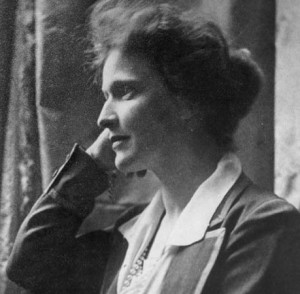 He added that Ernest Altounyan (1889-1962), a doctor who had known TE intimately for five years, pronounced him “perfectly normal”. Miss Farida Aql (1882-1976), who helped TE with his Arabic in 1911 and had always been in touch with him, had been heartbroken by the vile rumours that had reached her, since she “had always found in him a spotless and shrinking purity of body, mind and soul.” (*78)
He added that Ernest Altounyan (1889-1962), a doctor who had known TE intimately for five years, pronounced him “perfectly normal”. Miss Farida Aql (1882-1976), who helped TE with his Arabic in 1911 and had always been in touch with him, had been heartbroken by the vile rumours that had reached her, since she “had always found in him a spotless and shrinking purity of body, mind and soul.” (*78)
A personal link with homosexuality might also explain the mixed attitude of Nancy Astor, a good friend of TE, towards the activities of the Lawrence Bureau. Astor (1879-1964), the first woman to become a member of Parliament in England in 1919, had two sons who were involved in homosexuality. Robert Gould Shaw III (1898-1970) (more commonly referred to as Bobbie) her son from her first marriage, was a rather difficult character who had all kinds of problems. He had an unstable personality, suffering from depression and alcoholism (*79), and struggled with his homosexuality. In 1931 he was arrested for a being involved in a homosexual act. The police told his parents about the offence, before they issued the warrant. 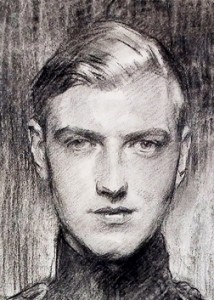 This would give Bobbie a chance to leave the country, during which time the warrant would be “forgotten”. But he refused to leave and had his day in court, being sentenced to four months in prison. The Astor family used their considerable influence to keep the incident out of the press. (*80) Astor’s son from her second marriage, David Astor (1912-2001), a well-known newspaper owner (The Observer), had strong views about human rights. He wrote against the death penalty, opposed all censorship and became the main financial backer of the Homosexual Law Reform Society (1958), an organisation which campaigned for changes in the laws that criminalized homosexual relations between men. Most of the founders of the organisation were not homosexuals, so that they would never be accused of feathering their own nest.
This would give Bobbie a chance to leave the country, during which time the warrant would be “forgotten”. But he refused to leave and had his day in court, being sentenced to four months in prison. The Astor family used their considerable influence to keep the incident out of the press. (*80) Astor’s son from her second marriage, David Astor (1912-2001), a well-known newspaper owner (The Observer), had strong views about human rights. He wrote against the death penalty, opposed all censorship and became the main financial backer of the Homosexual Law Reform Society (1958), an organisation which campaigned for changes in the laws that criminalized homosexual relations between men. Most of the founders of the organisation were not homosexuals, so that they would never be accused of feathering their own nest.
Even Arnold Lawrence kept his distance from the Lawrence Bureau and was unwilling to provoke a lawsuit against Aldington, because he feared that he had more damaging information up his sleeve, such as evidence of the masochistic activities of TE. In 1937, while working on TE Lawrence By His Friends , he had tried to counter accusations of homosexuality, and he had learned that such efforts would do no good at all. Arnold did not fear Aldington’s book doing any permanent harm to his brother’s reputation, his main worry was the distress it caused his mother.
ARGUMENTS TO PROVE THAT TE WAS NOT A HOMOSEXUAL 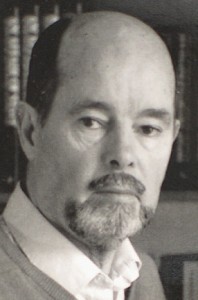
The negative connotations attached to the label “homosexual” led to strong reactions from both friends and biographers against accusations of homosexuality in TE.The first point that stands out, when we look at their counter-arguments, is that most authors do not seem to have a clue of what it means to be a homosexual and of what homosexuality is all about. The only one to admit to this was the biographer and journalist Philip Knightley. “We had devoted one chapter to examining the charge that Lawrence was a homosexual, in retrospect an ill-advised effort, but since the book was being written under pressure and out of chronological order it seemed a good idea at the time. An editor at Nelson wisely rejected it in its entirety with reasons we found impossible to dispute. He had once been a homosexual himself, he said, and it was clear that we had not the faintest idea of what it was all about.” (*81) Some of the arguments just make no sense at all or seem to be totally ridiculous, and therefore disputing them, as I wanted to do at first, is meaningless. Sometimes they even seem like desperate attempts to confuse the issue as much as possible in the false hope that the problem will go away. But the main reason is that the arguments are not about the reality of homosexuality at all, but are meant to counter the stereotype of evil and criminal behaviour, by suggesting that TE was not a bad person at all.
Both the people who accuse TE of being a homosexual (like Aldington) and his defenders (like the Lawrence Bureau), share the same prejudices about homosexuality as held by the general public of their time. If they had known that TE had been an active homosexual, many friends and colleagues would never have befriended or admired him. Therefore a public reaction and defence was necessary for them to clear their own reputation, since no one wanted to be publicly known as a friend of a homosexual, and consequently as an accomplice to a criminal. If TE had been caught and brought to justice, their reputation would have been ruined just like his.
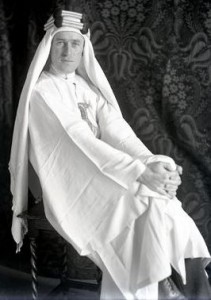 Let’s have a look at some of the arguments that were used to counter accusations of TE’s homosexuality, in more detail:
Let’s have a look at some of the arguments that were used to counter accusations of TE’s homosexuality, in more detail:
– HOMOSEXUALITY IS SOMETHING PRIVATE AND OF NO IMPORTANCE TO ANYONE BUT TE HIMSELF.
We do not bother about the sexual activities of our neighbours, so why should we bother about those of TE and take them seriously? This argument sounds absolutely reasonable, but only in a perfect world for homosexuals, and that was not the world in which he lived. The homosexuality of TE is a very important question for two reasons. If TE had in fact been a practising homosexual, he had to keep it secret since homosexual acts were illegal. Such acts would not only lead to dismissal from the armed forces, but also to time in prison. For most homosexuals who were caught, the choice was to live abroad or to kill themselves. It would have been an enormous public scandal, if the “Uncrowned King of Arabia” had been caught for being a “pervert”, and it would have caused a great deal of embarrassment to the establishment. Secondly, the question of homosexuality was of great importance for TE himself, and a question which he must have asked himself many times after he was raped in Deraa in 1917. Male rape victims are often considered to be homosexual by others, because they were not capable of resisting the rape, as “a real man” would have done. And the victims themselves often believe this myth too. They suffer from an over-estimation of the sexual aspects of the rape, which threatens their sexual identity and often leads to an exacerbation of feelings of shame and guilt. Internalising the incident, the victim of male rape will blame himself for its occurrence, asking himself the same question over and over, “Did I ask for it because I am a homosexual?”
– SOMEONE WHO ACCUSES TE OF BEING HOMOSEXUAL, IS A HOMOSEXUAL HIMSELF. HE HAS SOME KIND OF POLITICAL AGENDA AND IS CERTAINLY OVERSEXED.
Blaming the bearer of bad news has of old been a great tactic. And throwing the label “homosexual” at such an enemy was an even greater way to discredit him in the eyes of the public and turn him into an evil person. Consequently, both the person accused and the accuser suffer the same treatment: they are both suspect. Thus the label “homosexual” works both ways. If not a homosexual himself, the person who accused TE of being homosexual, had to have another political agenda up his sleeve. For example, as I showed earlier, opponents and enemies of TE, mainly privately but some publicly, suggested that TE was a homosexual in order to discredit him. TE was their enemy, and in their eyes evil, and therefore it was only obvious that he had to be homosexual too.
I experienced this tactic myself several times, when I was studying and corresponding on TE’s (homo)sexuality. Jack Easton, who served with TE in the RAF in India from 1927-1929, wrote me, ” whoever said he was a homosexual, to me (it) is quite clear that they are homosexual themselves, and is trying to make excuses to say they are not.” (*82) And someone else told me, even before she had read one word I had written, that it seemed rather unnecessary to “bring up issues of a controversial nature in sensationalist language so as to distort the significance of them, to the detriment of TE’s whole life’s work, his example and his achievements”. Any author guilty of this only acted out of “self-serving notions” and must be “self-focussed” and unscientific, to say the least. 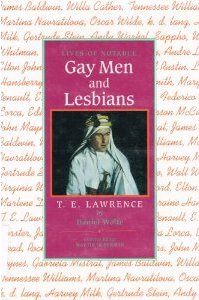 Because I discussed the subject, I had to be homosexual myself; why else would I be interested in TE’s homosexuality? Even if I claimed to be heterosexual I was still suspect, because in that case what did I know about the subject to be able to discuss and write about it? Not that this woman had anything against homosexuals, no certainly not! She was tolerant and even some of her best friends were gay!
Because I discussed the subject, I had to be homosexual myself; why else would I be interested in TE’s homosexuality? Even if I claimed to be heterosexual I was still suspect, because in that case what did I know about the subject to be able to discuss and write about it? Not that this woman had anything against homosexuals, no certainly not! She was tolerant and even some of her best friends were gay!
According to the label, homosexuals show an obsessive interest in sex – if not in acts, then in talking about it constantly, even speculating about the sexual activities of people around them alive or dead. (*83) Therefore my interest in TE’s sexuality showed either that I was homosexual, or that I was sexually obsessed. In both cases I was unreliable as an objective historian, since I certainly had a political agenda, if only to justify my own behaviour. It was only obvious that I was using TE’s popularity to give myself some form of legitimacy. And indeed, TE’s name has been widely used by gay activists, even as early as 1939, to show the world that even a homosexual was capable of achieving remarkable things. Idealizing the past (Greek, Roman or Arab) or the life of different peoples (Melanesia) has played an important part in the development of a self-conscious homosexual personality. For many homosexuals TE served as an example, being both a manly and heroic adventurer and a homosexual, as opposed to the stereotype of the effeminate homosexual of that time. People like Christopher Isherwood (1904-1986), and TE’s friends E.M. Forster and Siegfried Sassoon, were inspired by the things TE so courageously described in Seven Pillars, such as the story of the love of Farraj and Daud, and TE’s own love for Ali and (in his real life) for Dahum as expressed in the poem to S.A. (*84)
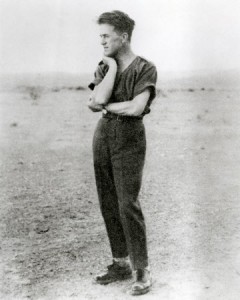 – TE WAS NOT BAD OR EVIL, BUT A GOOD PERSON AND NEVER SHOWED ANY SIGNS OF BEING “A PERVERT”. THE PEOPLE AROUND HIM WOULD CERTAINLY HAVE RECOGNIZED BEHAVIOUR TYPICAL OF HOMOSEXUALS.
– TE WAS NOT BAD OR EVIL, BUT A GOOD PERSON AND NEVER SHOWED ANY SIGNS OF BEING “A PERVERT”. THE PEOPLE AROUND HIM WOULD CERTAINLY HAVE RECOGNIZED BEHAVIOUR TYPICAL OF HOMOSEXUALS.
These arguments try to show that the people closest to TE never saw any indication of deviant behaviour, and if he had been homosexual they certainly would not have missed it. TE was “clean” and had “a mind as pure as gold”, and he never showed any signs of being “a pervert”. (*85) Friends, acquaintances and comrades in the military would certainly have known, if this had been the case. (*86) They would have recognized hints (*87) of “improper behaviour” or “abnormal tendencies” typical of homosexuals. (*88) These counter-arguments were a reaction to Aldington saying that it was no surprise that he was not able to find evidence of actual homosexual behaviour of TE, since “relatives and friends are the last persons to hear of or to suspect homosexual practices”. Unfortunately for the defenders, Aldington has a point. Research in the late 1950s showed that of the homosexuals interviewed, 31% thought their homosexuality was very secret, 32% said it was only known to other homosexuals, while only 21% reported that close friends knew about it. (*89) For many people it was a frightening idea that evil was in their midst, therefore they kept holding on to the belief that they would be able to recognize these criminals immediately. The problem was, as I said before, that homosexuals who were forced to live a double life proved to be quite successful at it. Why else would newspapers devote articles to “How to Spot a Homo”?
– TE WAS ONLY SYMPATHETIC AND TOLERANT TOWARDS HOMOSEXUALITY. (*90)
This is a reaction to Aldington’s argument that TE showed sympathy for homosexual relations, Seven Pillars being an outspoken “declaration of preference for homosexuality”. The problem with this argument from both accusers and defenders is that tolerance of, sympathy for, and writing about homosexuality might suggest something, but do not constitute actual proof that TE had homosexual feelings or did or did not act upon them. My own case illustrates this, since nothing can be concluded about my private life from either my years of research on the subject or my writing about it.
– TE WAS NOT AVERSE TO WOMEN AT ALL, HAVING MANY FEMALE FRIENDS. HE HAD HETEROSEXUAL POTENTIAL, A DESIRE FOR MARRIAGE, AND EVEN PROPOSED TO A WOMAN.
According to this argument, TE was attractive to women, would have married if he only had found the right woman, and even respected women “as people”. (*91) This was a reaction to Aldington’s suggestion that TE openly declared his hatred for women and of sex with them in his writings, and showed disdain for heterosexual relations. 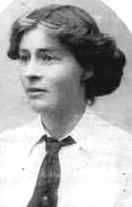 What seemed like the most promising counter-argument was the story that TE had proposed to a childhood friend, Janet Laurie (1886-?), in 1910. She had rejected him, because she was secretly in love with his brother Will (1889-1915), and he with her. It is suggested that she was “the (female) love of his life”, her rejection leaving TE “devastated”, after which he went to Carchemish “on the rebound”. (*92) But the evidence for the story is rather weak, and Laurie herself was an unreliable witness. (*93) Besides, many homosexuals in TE’s time proposed to women and were married, often unhappily. “Since contemporary medical opinion maintained that homosexuality was an illness bordering on insanity, most “sufferers” inevitably fought their desires through sublimation or marriage.” (*94) Lytton Strachey (1880-1932), for example, proposed to Virginia Stephen (later Woolf) (1882-1941), and TE’s friend Siegfried Sassoon was married, as were other homosexuals – John Addington Symonds (1840-1893), Oscar Wilde (1854-1900), and Harold Nicholson (1886-1968), among others. The idea that being rejected by a woman would turn a man into a celibate or a homosexual, is a well-known tradition. Examples include the Arab poet Abu Nuwas (757-814), who wrote many poems about the love of boys, Lewis Carroll (1832-1898), who turned to young girls, and Swinburne (1837-1909), who turned to the whip.
What seemed like the most promising counter-argument was the story that TE had proposed to a childhood friend, Janet Laurie (1886-?), in 1910. She had rejected him, because she was secretly in love with his brother Will (1889-1915), and he with her. It is suggested that she was “the (female) love of his life”, her rejection leaving TE “devastated”, after which he went to Carchemish “on the rebound”. (*92) But the evidence for the story is rather weak, and Laurie herself was an unreliable witness. (*93) Besides, many homosexuals in TE’s time proposed to women and were married, often unhappily. “Since contemporary medical opinion maintained that homosexuality was an illness bordering on insanity, most “sufferers” inevitably fought their desires through sublimation or marriage.” (*94) Lytton Strachey (1880-1932), for example, proposed to Virginia Stephen (later Woolf) (1882-1941), and TE’s friend Siegfried Sassoon was married, as were other homosexuals – John Addington Symonds (1840-1893), Oscar Wilde (1854-1900), and Harold Nicholson (1886-1968), among others. The idea that being rejected by a woman would turn a man into a celibate or a homosexual, is a well-known tradition. Examples include the Arab poet Abu Nuwas (757-814), who wrote many poems about the love of boys, Lewis Carroll (1832-1898), who turned to young girls, and Swinburne (1837-1909), who turned to the whip.
– TE HAD MANY HETEROSEXUAL FRIENDS, MOST OF WHOM WERE MARRIED, SO THERE WAS NOTHING SUSPECT ABOUT HIS FRIENDSHIPS WITH THEM. AND THEIR WIVES HAD NO DIFFICULTY WITH HIM.(*95)
This is a reaction to Aldington’s argument that TE had many friends who were homosexual, while his intimate friendships with men, were “comparable in intensity to sexual love”, as his brother Arnold had said. Unfortunately both Aldington’s argument and the counter-arguments do not make any sense whatsoever. There are just too many myths and simplifications about homosexuality in them. As if married men could not be homosexual or engage in homosexual acts. As if heterosexual men only have sex with women. As if wives of heterosexuals only have difficulties, or feel threatened, by homosexuals who befriended their husbands. And most important, as if homosexuals only have homosexuals as friends and only have sex with other homosexuals. (*96) 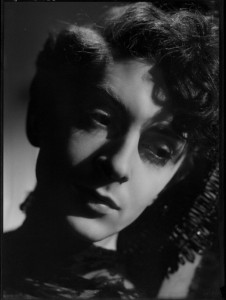 The reality, however, was much more complex, particularly since the homosexual subculture of TE’s time consisted mainly of picking up young men in pubs and urinals who were happy to have sex in exchange for a meal or comradeship. Most of these were heterosexuals, having wives or girlfriends. Men from all walks of life (aristocrats, writers, artists, working-class ruffians, soldiers, policemen and thieves) shared talk, friendship and sex. (*97) In this subculture, there was a strict distinction between “effeminates” and “roughs”. Effeminates were never attracted to each other, but desired real men. Roughs had nothing effeminate about them, and according to Quentin Crisp (1908-1999), “must never admit to themselves or to God or to one another that they even liked the company of homosexuals – let alone that “trade” with them was a pleasurable pastime.” (*98) The poet W.H. Auden (1907-1973) said that a mutual, reciprocal relationship with another man even had “something indecent” about it. (*99) And thus many homosexuals were attracted to boys or to working class men (*100), with the sexual relation being most important. As Crisp says, “If you ask a homosexual what his newest true love is like, you will never get the answer, “He is wise or kind or brave”. He will only say, “It’s enormous.” (*101) The consequence was that, “The homosexual world is a world of spinsters. Most homosexuals … search perpetually for a real man who desires passionately (as opposed to making do with) another man. This being, if he exists, is so rare that one might as well enter a monastery on reaching puberty. The less drastic alternative is to live a real sex life in a dream world. This can best be done in the dark with strangers.” (*102) However effeminacy, camp mannerisms, molly clubs, and “cottaging” (anonymous sex in public toilets) were abhorred by many men who felt emotional attraction or sexual desire (or both) for other men. They preferred the still uncorrupted manly love of olden times.
The reality, however, was much more complex, particularly since the homosexual subculture of TE’s time consisted mainly of picking up young men in pubs and urinals who were happy to have sex in exchange for a meal or comradeship. Most of these were heterosexuals, having wives or girlfriends. Men from all walks of life (aristocrats, writers, artists, working-class ruffians, soldiers, policemen and thieves) shared talk, friendship and sex. (*97) In this subculture, there was a strict distinction between “effeminates” and “roughs”. Effeminates were never attracted to each other, but desired real men. Roughs had nothing effeminate about them, and according to Quentin Crisp (1908-1999), “must never admit to themselves or to God or to one another that they even liked the company of homosexuals – let alone that “trade” with them was a pleasurable pastime.” (*98) The poet W.H. Auden (1907-1973) said that a mutual, reciprocal relationship with another man even had “something indecent” about it. (*99) And thus many homosexuals were attracted to boys or to working class men (*100), with the sexual relation being most important. As Crisp says, “If you ask a homosexual what his newest true love is like, you will never get the answer, “He is wise or kind or brave”. He will only say, “It’s enormous.” (*101) The consequence was that, “The homosexual world is a world of spinsters. Most homosexuals … search perpetually for a real man who desires passionately (as opposed to making do with) another man. This being, if he exists, is so rare that one might as well enter a monastery on reaching puberty. The less drastic alternative is to live a real sex life in a dream world. This can best be done in the dark with strangers.” (*102) However effeminacy, camp mannerisms, molly clubs, and “cottaging” (anonymous sex in public toilets) were abhorred by many men who felt emotional attraction or sexual desire (or both) for other men. They preferred the still uncorrupted manly love of olden times.
– TE WAS A MASOCHIST.
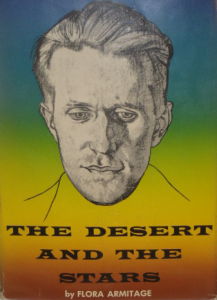 The first TE biography to be published after Aldington’s was The Desert and the Stars (1956) by Flora Armitage. (*103) Written by a woman, this book explained that TE did not hate women at all, but only hated sex. Armitage focussed in particular on the rape in Deraa and its consequence, “the discovery that physical punishment could arouse in him that ecstasy of nerve and blood which his mind so violently rejected.” Thus masochism, “an almost irresistible desire for submission”, took the place of homosexuality, as introduced by Aldington. (*104) This replacement by a new label was probably the cleverest move in countering the discussion of TE’s homosexuality. A masochist only harms and hurts himself, and therefore is a lot more acceptable than “a corruptor of youth”, a criminal and evil person. While the Greek and “unmentionable” vice was rejected fiercely and criminalized until 1967, masochism was much more acceptable for the English, who were known for their long acceptance and tolerance of beatings. It’s not for nothing that masochism was called the “English vice”.
The first TE biography to be published after Aldington’s was The Desert and the Stars (1956) by Flora Armitage. (*103) Written by a woman, this book explained that TE did not hate women at all, but only hated sex. Armitage focussed in particular on the rape in Deraa and its consequence, “the discovery that physical punishment could arouse in him that ecstasy of nerve and blood which his mind so violently rejected.” Thus masochism, “an almost irresistible desire for submission”, took the place of homosexuality, as introduced by Aldington. (*104) This replacement by a new label was probably the cleverest move in countering the discussion of TE’s homosexuality. A masochist only harms and hurts himself, and therefore is a lot more acceptable than “a corruptor of youth”, a criminal and evil person. While the Greek and “unmentionable” vice was rejected fiercely and criminalized until 1967, masochism was much more acceptable for the English, who were known for their long acceptance and tolerance of beatings. It’s not for nothing that masochism was called the “English vice”.
– TE WAS A-SEXUAL OR IMPOTENT AND THEREFORE HAD NO SEXUAL RELATIONS IN PRACTICE.
Since only homosexual acts were a crime, it became important for the defenders of TE to argue that he did not engage in sexual acts. Thus they came up with the argument of TE being sexless. (*105) The problem was, however, that TE was in fact a very sexual person, who struggled with “beastly intrusions”, and for years blamed and punished himself for having had an erection and an orgasm during the rape at Deraa in 1917. We now know from male rape research, that such a reaction was only natural, and just a physical and even defensive reaction of the body when tortured and raped. 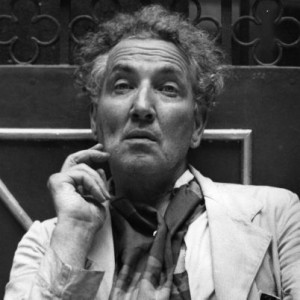 But at that time TE was not aware of that. According to Robert Graves, he suffered from nightmares, in some of which he experienced “fantastic sexual orgies in his mind”. (*106) These fantasies disturbed TE immensely, and confirmed to him that it was not his reason but the “traitors from within” (*107) which ruled him. And these he desperately tried to conquer by organizing rituals of punishments for himself. Graves also suggested that TE could not be (an active) homosexual, since he was flogged into a permanent impotence after resisting the sexual assault. (*108) Now impotence is a sexual dysfunction in which erection or penetration fails because of physical or psychological reasons. But the fact is that TE did engage in sexual acts, since he organized men to beat him until he had an orgasm. According to the letter of the law, these were acts of “gross indecency”, and whether they were in public or in private, they were to be punished by up to two years imprisonment with hard labour. And TE was well aware of this, and kept it very, very secret.
But at that time TE was not aware of that. According to Robert Graves, he suffered from nightmares, in some of which he experienced “fantastic sexual orgies in his mind”. (*106) These fantasies disturbed TE immensely, and confirmed to him that it was not his reason but the “traitors from within” (*107) which ruled him. And these he desperately tried to conquer by organizing rituals of punishments for himself. Graves also suggested that TE could not be (an active) homosexual, since he was flogged into a permanent impotence after resisting the sexual assault. (*108) Now impotence is a sexual dysfunction in which erection or penetration fails because of physical or psychological reasons. But the fact is that TE did engage in sexual acts, since he organized men to beat him until he had an orgasm. According to the letter of the law, these were acts of “gross indecency”, and whether they were in public or in private, they were to be punished by up to two years imprisonment with hard labour. And TE was well aware of this, and kept it very, very secret.
– TE CHOSE NOT TO GET INVOLVED IN SEXUAL RELATIONSHIPS BECAUSE OF BOTH MORAL AND TRAUMATIC REASONS, AND THE FEW SEXUAL ACTS IN WHICH HE WAS INVOLVED WERE PRIMARILY MEANT TO DEAL WITH HIS TRAUMA.
This would be my argument, to explain TE’s sexual behaviour or the lack of it after the war. He knew very well that homosexual acts were illegal and would bring shame on his family, his friends and his fellow soldiers. His moral and ethical standards were central to him (*109), and he always tried to act towards others with integrity. Sex he considered to be “beastly”, a view which was stamped into him by his mother during his childhood, and was unfortunately confirmed by the awful rape he experienced. The only solution for TE was to deal with his damaged sexuality and with the traumas around it by releasing it in strictly controlled and ritualistic circumstances.
In TE’s time, many men who felt homosexually inclined bowed to the forces of society around them, and repressed their sexual desires. “The same moral law which forbids a heterosexual epileptic or consumptive or invalid suffering from any transmissible disease, to perpetuate his scourge while refashioning it, this same law forbids the invert from indulging his inclinations.” (*110) Following the road of continence and sublimation through self-discipline and self-control, was a long-standing Victorian tradition, in which TE was raised by his mother. (*111) 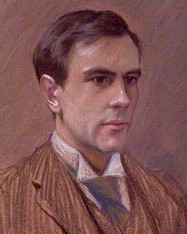 But it was a hard battle with the “beastly” part of the self, and according to the historian Goldsworthy Lowes Dickinson (1862-1932), who chose this path for himself, it was “unhealthy, unbalanced, perhaps ultimately insane. (…) The strain is often very great; and one requires, perhaps, an unusual measure of self-control, and an intense preoccupation with intellectual or practical pursuits.” (*112) TE called it “the enforced celibacy of (the) blanket’s harsh embrace” (*113), and regarded the repression of passions not only as “crippling” to a man, but also as dangerous. “Celibacy is unnatural, in the real sense, and it overturns a man’s balance; for it throws him either on himself (which is unwholesome, like sucking your own tail, in snakes) or on friendship to satisfy the urge of affection within … and such friendships may easily turn into sex-perversion.” (*114) Thus it seems that TE rejected masturbation as being “unwholesome”, while others (like Dickinson) used it, “as the proper and healthy course to adopt by anyone having the homogenic temperament who cannot otherwise satisfy his sex, and who has sufficient self-control and preoccupation with higher interests to prevent him from taking too seriously, or indulging to excess, a mere animal need.” (*115) To “satisfy the urge of affection within”, TE opted for (male) friendships instead, or in the words of his brother Arnold, “His friendships were comparable in intensity to sexual love, for which he made them a substitute.” (*116)
But it was a hard battle with the “beastly” part of the self, and according to the historian Goldsworthy Lowes Dickinson (1862-1932), who chose this path for himself, it was “unhealthy, unbalanced, perhaps ultimately insane. (…) The strain is often very great; and one requires, perhaps, an unusual measure of self-control, and an intense preoccupation with intellectual or practical pursuits.” (*112) TE called it “the enforced celibacy of (the) blanket’s harsh embrace” (*113), and regarded the repression of passions not only as “crippling” to a man, but also as dangerous. “Celibacy is unnatural, in the real sense, and it overturns a man’s balance; for it throws him either on himself (which is unwholesome, like sucking your own tail, in snakes) or on friendship to satisfy the urge of affection within … and such friendships may easily turn into sex-perversion.” (*114) Thus it seems that TE rejected masturbation as being “unwholesome”, while others (like Dickinson) used it, “as the proper and healthy course to adopt by anyone having the homogenic temperament who cannot otherwise satisfy his sex, and who has sufficient self-control and preoccupation with higher interests to prevent him from taking too seriously, or indulging to excess, a mere animal need.” (*115) To “satisfy the urge of affection within”, TE opted for (male) friendships instead, or in the words of his brother Arnold, “His friendships were comparable in intensity to sexual love, for which he made them a substitute.” (*116)
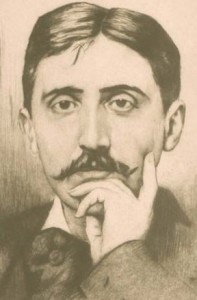 The French writer Marcel Proust (1871-1922) once said, “A homosexual is not a man who loves homosexuals, but merely a man who, seeing a soldier, immediately wants to have him for a friend.” (*117) In that sense TE was clearly a homosexual, since he loved meeting, working and being with soldiers, and particularly taking care of them. But then how did he deal with the danger of “beastly intrusions” in such friendships? To quell the attraction and desire he felt in the armed forces caused by his intimacy with men, TE took desperate measures. Fearing his own passions, but also in an attempt to deal with people who had suspicions about him, he put up all kinds of “Verboten notice-boards” (*118), self-denying ordinances, one of which prevented him from “ever sitting down on another bed than my own.” (*119) And ultimately there were the ritual beatings to resist any desire whatsoever that friendship might lead to any form of “sex-perversion”. Friendships were, however, not only a substitute for sexual love, as his brother implies; they became an anchor which kept TE sane, just like his regular and ordered life in the armed forces did. With these friendships he created a new and loving family for himself, in which he found some kind of home, a safe place which he so desperately needed in his life.
The French writer Marcel Proust (1871-1922) once said, “A homosexual is not a man who loves homosexuals, but merely a man who, seeing a soldier, immediately wants to have him for a friend.” (*117) In that sense TE was clearly a homosexual, since he loved meeting, working and being with soldiers, and particularly taking care of them. But then how did he deal with the danger of “beastly intrusions” in such friendships? To quell the attraction and desire he felt in the armed forces caused by his intimacy with men, TE took desperate measures. Fearing his own passions, but also in an attempt to deal with people who had suspicions about him, he put up all kinds of “Verboten notice-boards” (*118), self-denying ordinances, one of which prevented him from “ever sitting down on another bed than my own.” (*119) And ultimately there were the ritual beatings to resist any desire whatsoever that friendship might lead to any form of “sex-perversion”. Friendships were, however, not only a substitute for sexual love, as his brother implies; they became an anchor which kept TE sane, just like his regular and ordered life in the armed forces did. With these friendships he created a new and loving family for himself, in which he found some kind of home, a safe place which he so desperately needed in his life.
A NEW LABEL: NO HOMOSEXUAL OR MASOCHIST, BUT SUFFERING FROM TRAUMA
 In my opinion, TE was neither a homosexual nor a masochist, as I will explain in other articles on this blog. Both labels only lead to more questions, misunderstandings and even to narrow-mindedness, as my own case clearly illustrates. I once spent two hours with Wilfred Thesiger (1910-2003), the famous traveller and admirer of TE and Seven Pillars, of which he owns the rare subscribers’ edition. During my research on sexual behaviour in the Middle East, I read his book Arabian Sands (1959), and I wrote to him to ask about his love for Bedouin boys, which he described in glowing terms. (*120) Thesiger answered me in a very friendly fashion, ignoring my question. I had told him I was coming to England for a holiday soon, and he kindly invited me to visit him.
In my opinion, TE was neither a homosexual nor a masochist, as I will explain in other articles on this blog. Both labels only lead to more questions, misunderstandings and even to narrow-mindedness, as my own case clearly illustrates. I once spent two hours with Wilfred Thesiger (1910-2003), the famous traveller and admirer of TE and Seven Pillars, of which he owns the rare subscribers’ edition. During my research on sexual behaviour in the Middle East, I read his book Arabian Sands (1959), and I wrote to him to ask about his love for Bedouin boys, which he described in glowing terms. (*120) Thesiger answered me in a very friendly fashion, ignoring my question. I had told him I was coming to England for a holiday soon, and he kindly invited me to visit him. 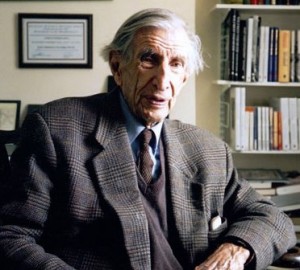 Promising myself not to let him get away with it this time, I arrived at his apartment in London on August 6, 1988, ten days before the centenary of TE’s birth. Thesiger lived in an apartment in Tite Street, where Oscar Wilde had lived, and I was given tea and cookies. Impressed by his charisma, suddenly the questions I had prepared felt totally futile and irrelevant. So we just talked about his life and experiences, and about me and TE, and he proudly showed me his TE books. It felt great to be in his presence, with TE hovering somewhere in the background. Afterwards I felt such a fool that I ever considered asking him about his (homo)sexuality. What was it to me?
Promising myself not to let him get away with it this time, I arrived at his apartment in London on August 6, 1988, ten days before the centenary of TE’s birth. Thesiger lived in an apartment in Tite Street, where Oscar Wilde had lived, and I was given tea and cookies. Impressed by his charisma, suddenly the questions I had prepared felt totally futile and irrelevant. So we just talked about his life and experiences, and about me and TE, and he proudly showed me his TE books. It felt great to be in his presence, with TE hovering somewhere in the background. Afterwards I felt such a fool that I ever considered asking him about his (homo)sexuality. What was it to me?
Learning from this experience, my proposal would be to replace the labels “homosexual” and “masochist” with the label “trauma victim” (a combination of childhood trauma, war trauma and rape trauma), which explains a lot more about TE’s feelings, thoughts and behaviour in practice, than the other two. But, since every label has its limitations, I hope that even this one will be used only temporarily. The intention of my work on TE is ultimately to get rid of labels altogether, and come to a more holistic and integrated view of TE, the man and his qualities.
The notes for this article can be found in the next post: “The Label “Homosexual” – 3d Part: Notes”.

